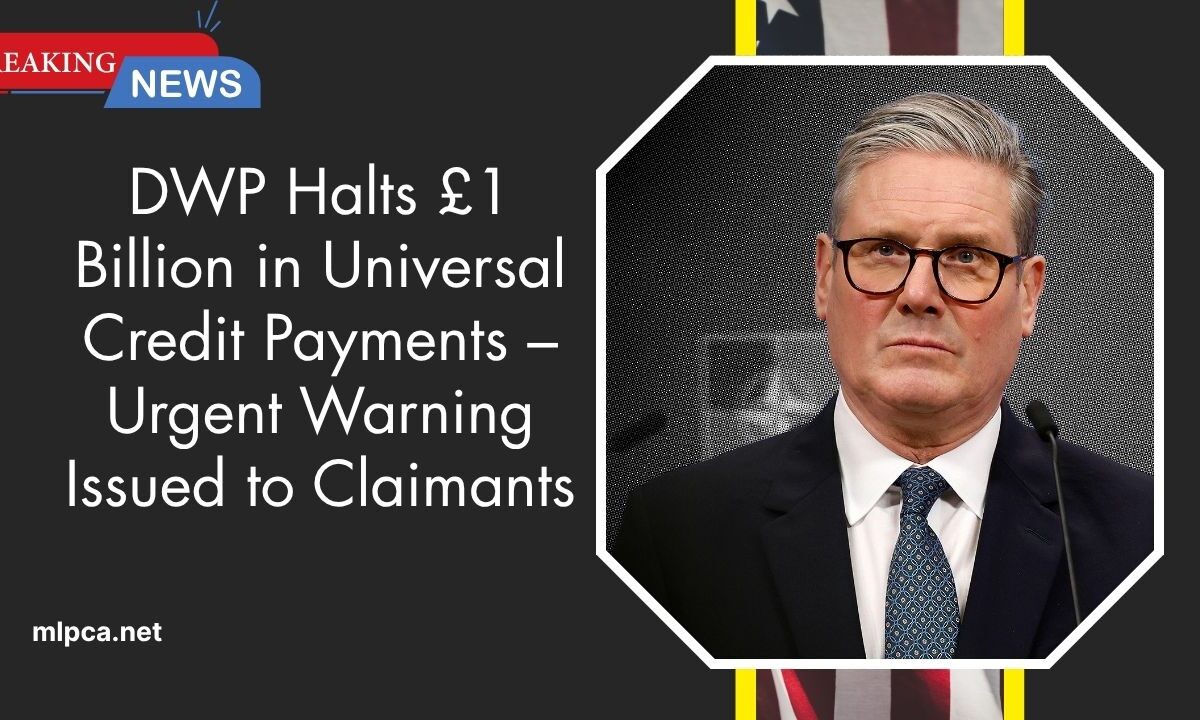The Department for Work and Pensions (DWP) has taken decisive action to prevent Universal Credit overpayments, blocking more than £1 billion in incorrect disbursements.
This development comes amid a wider review programme initiated under the Labour Party government, aiming to safeguard public funds and prevent benefit-related debt.
Targeted Case Review: The Backbone of the Operation
Established in 2022, the Targeted Case Review team plays a critical role in verifying the accuracy of Universal Credit claims.
Having reviewed over one million claims to date, the team has uncovered historic payment errors and proactively stopped future overpayments, helping to protect both taxpayers and recipients from financial mishaps.
- The goal is to identify both underpayments and overpayments.
- Although the reviews are not aimed at detecting fraud, any suspicious activity may be referred to the DWP counter-fraud team for further investigation.
Staff Expansion and Future Projections
Since the programme’s initial phase, the number of staff has grown substantially. In the first year, the team examined around 25,000 claims.
Now, after a major recruitment push, the review team boasts 5,930 staff members—nearly doubling in size since July and reaching full capacity in February.
Labour’s Commitment to Accuracy and Integrity
Andrew Western, Labour’s Minister for Transformation, emphasized the significance of this initiative, stating:
“This target could not have been reached without a significant increase in staffing. We’re now projecting £13.6 billion in savings by 2030.”
Western also highlighted the programme’s dual benefit: it corrects overpayments and ensures that individuals who have been underpaid receive the full amount they are owed.
He reinforced Labour’s strict stance:
“We will not tolerate fraud, error, or waste. We’re determined to protect taxpayer money and redirect it to the public services that matter.”
Fraud on the Rise: A Growing Concern
Despite these positive strides, the DWP remains wary of a “long-term rising trend in fraudulent behaviour”. Officials warn that a softening attitude toward benefit fraud could lead to a 5% annual increase in fraudulent activity.
In 2023 alone, £8.3 billion was overpaid across all welfare benefits, with an estimated 75% attributed to fraud. This figure reflects an alarming pattern that took root during the pandemic, when annual overpayments surged past £8 billion.
Key Figures at a Glance
| Category | Details |
|---|---|
| Incorrect UC Payments Blocked | Over £1 billion |
| Claims Reviewed Since 2022 | More than 1 million |
| Team Size (Feb 2025) | 5,930 staff |
| First-Year Claims Reviewed | 25,000 |
| Forecasted Savings by 2030 | £13.6 billion |
| Overpayments in 2023 (All Benefits) | £8.3 billion |
| Fraud-Related Overpayments % | 75% |
| Estimated Annual Fraud Increase | 5% |
The DWP’s clampdown on Universal Credit overpayments reflects a crucial push toward financial responsibility and benefit system integrity.
With billions already saved and more on the horizon, the programme not only prevents taxpayer money from being wasted but also ensures fairness for claimants.
By identifying errors and increasing staff capacity, the government is working to strike the right balance between vigilance and support, ensuring that every penny goes where it’s truly needed.
FAQs
Why is the DWP reviewing Universal Credit claims?
The reviews aim to uncover both overpayments and underpayments, helping to ensure accuracy in benefit disbursement and reduce fraud.
How much money has the DWP saved so far?
Over £1 billion in incorrect Universal Credit payments have been blocked, with projected savings of £13.6 billion by 2030.
What happens if fraud is suspected during a review?
While the reviews aren’t specifically fraud-focused, any suspicious activity is referred to the DWP’s counter-fraud team for investigation.

